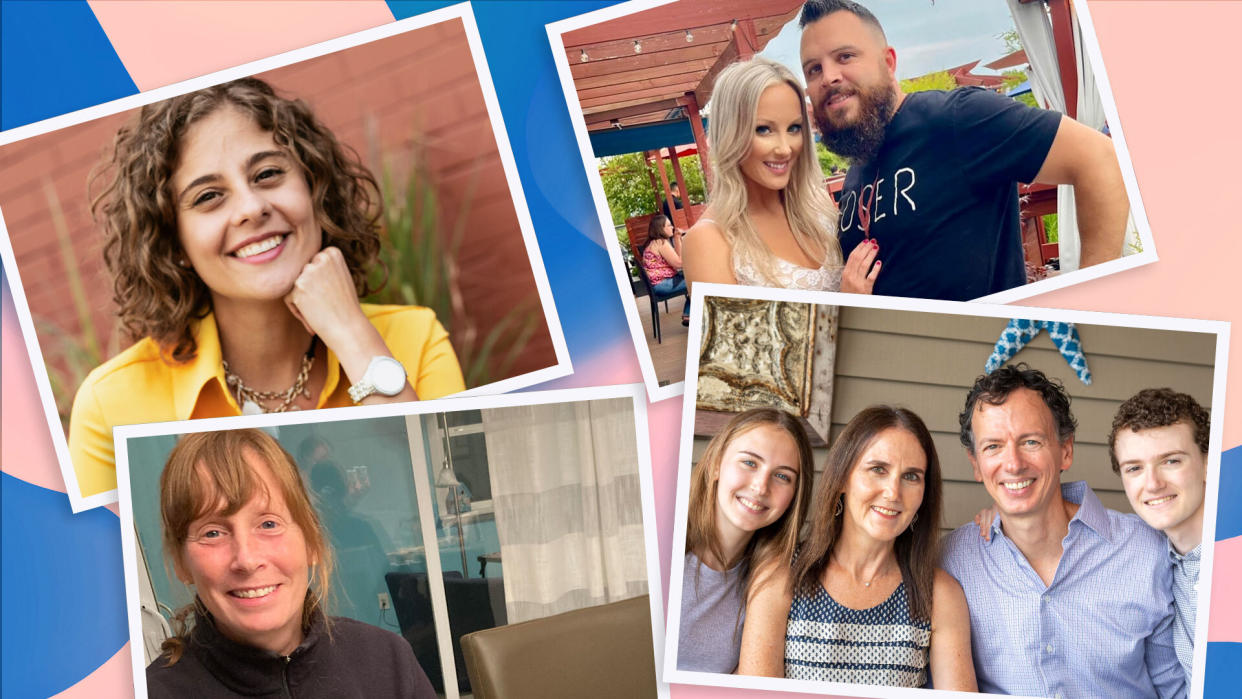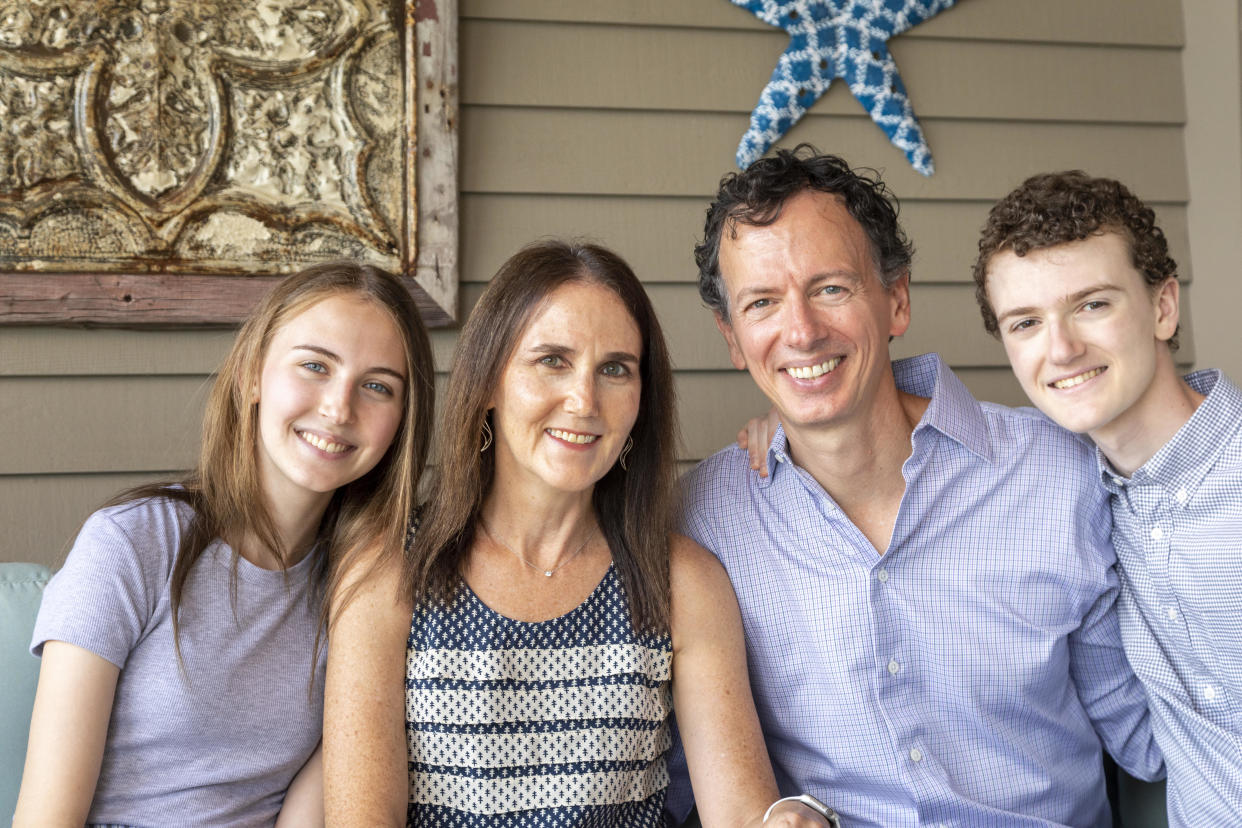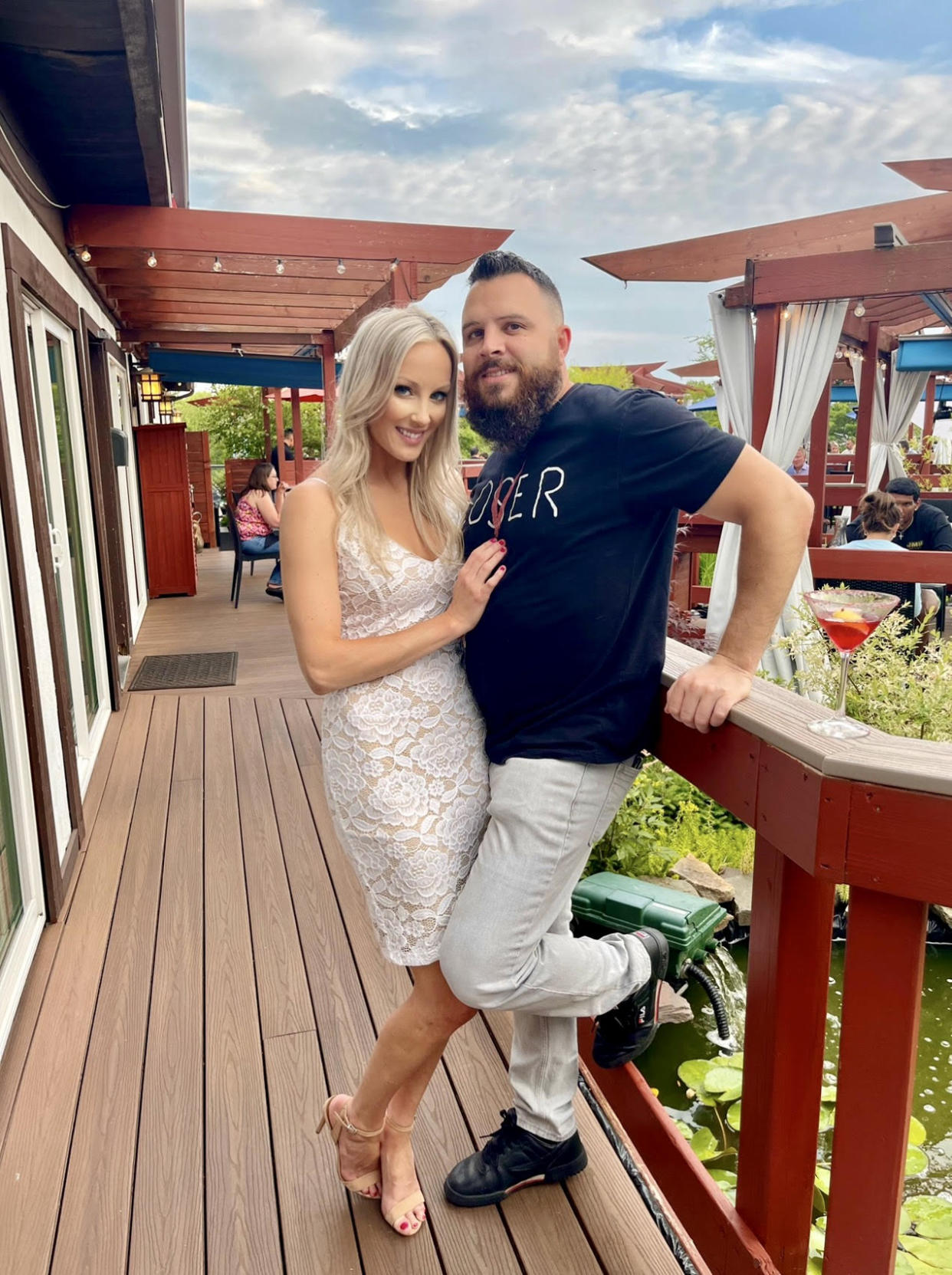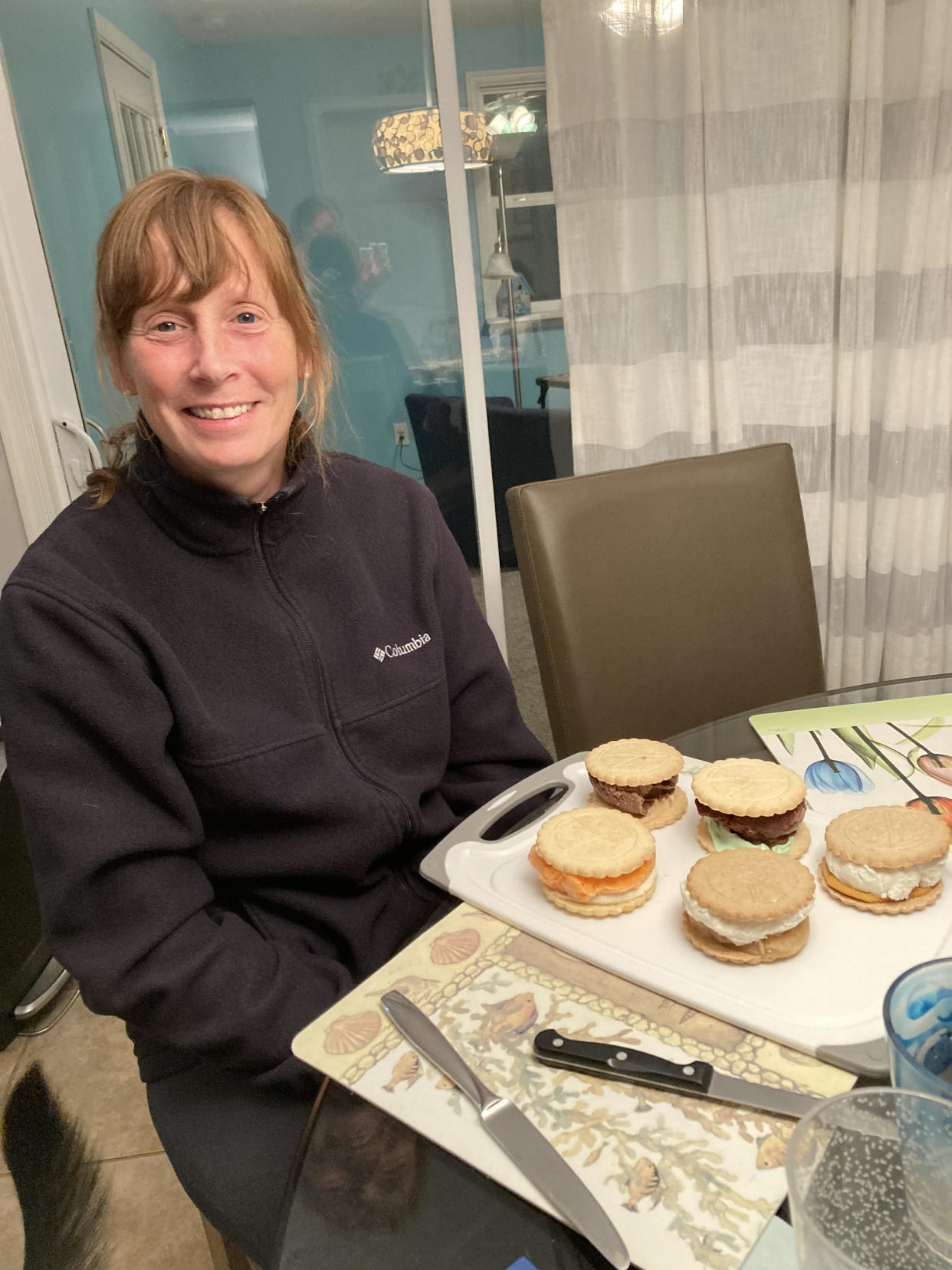‘Life with a hearing loss is like playing a perpetual charades game’: 4 women on living with hearing loss

It's easy to assume that hearing loss would never happen to you, but about 15% of American adults have some trouble hearing. There's a wide range when it comes to hearing loss, with a spectrum spanning from mild hearing loss, where someone has difficulty hearing softer sounds, to profound hearing loss, where a person will not hear any speech and can only hear very loud sounds. Basically, hearing loss is a condition that can look different for everyone.
Hearing loss can impact all aspects of a person's life, from work to social situations and relationships. And, while many people don't know what it's like to live with hearing loss, it's likely that someone you interact with regularly has the condition. Here's what it's like to live with hearing loss, according to people who have it.
Noisy environments are difficult to navigate
"Hearing loss makes socializing more challenging because communication takes more work, especially in noisy environments," Shari Eberts, co-author of Hear & Beyond: Live Skillfully with Hearing Loss, tells Yahoo Life. Eberts says that she first starting noticing hearing loss when she was in her mid-20s. Now 53, she says her hearing loss "has gotten progressively worse" and she wears two hearing aids as a result.
Eberts says she now uses a "combination of mental, technological and behavioral strategies to optimize each communication situation so I can participate and enjoy." That includes things such as lip reading, moving to a quieter part of the room and speaking to one person at a time. This, she says, "can be helpful in creating a better micro-environment within a challenging one."

It's common to have extra difficulty hearing in restaurants or crowds when you have hearing loss, Jennifer Masters, an audiologist at Mass Eye and Ear in Boston, tells Yahoo Life. "We tend to get most of the volume of speech from low frequencies and speech clarity from high frequencies," she explains. "That speech clarity is affected in crowded places." Noise in general, she says, also dampens speech clarity. As a result, Masters says she advises patients to "stay away" from chatting with loved ones in "bathrooms and kitchens — they're very reverberant environments, which increases the noise."
Dating can be complicated
Karina Cotran, 28, author of Hearing Differently: Growing Up With a Cochlear Implant, tells Yahoo Life that most people she has dated have been "very open-minded and curious" about her hearing loss, which she's experienced since she was 3 years old. But, she says, "others were quick to make assumptions that my having hearing loss was something difficult for them to deal with, or something that they didn’t expect of me at the moment when I told them I had it — and it didn’t end up going any further than that."
She's now in a relationship, but Cotran says she learned that she had to "be very honest" about what she can and can't hear. "This was to help make sure that I wasn’t putting myself in a position where I was making hearing difficult for myself, but also placing that unnecessary pressure on my partner to ‘hear for me’ when it can be prevented," she says. Cotran says she's also had to "learn how to be okay" with depending on her partner in order to hear in certain environments, especially during the height of the pandemic when people wore masks and she wasn't able to lip read.
"I learned how to be direct about my needs, and to create that safe space where my partner could ask me questions about my hearing loss without feeling weird or defensive about it," she adds.
Cotran also shares that in past relationships she felt the need to "overcompensate" for her hearing loss. "I was willing to let things slide with my other partner — things that I value in a partnership — because it felt like my hearing loss was also a thing that my partner has to let slide as well," she says. But, Cotran adds, "this is not how I feel now."

But hearing loss can make relationships stronger
Katherine Elizabeth Boettcher, 34, developed sudden hearing loss in her right ear when she was 30. She tells Yahoo Life that it's been a "learning game" for herself and her husband. They've learned, for example. that "when the water is running in our bathroom and he tries to talk to me, I can’t hear him at all from our bed," she says.
"I always laugh when he whispers in my right ear, forgetting I can’t hear a thing," Boettcher says. "It’s our normal and, if anything, I feel we are closer because he knows something about me that not everyone does and he supports my needs in my journey."
Telling people about the hearing loss is often important
"I usually tell people right away, especially if I am having trouble hearing them," Eberts says. "Because hearing loss is invisible, people may not know that you are having trouble hearing unless you tell them."
But Eberts says she also asks people to help her understand them better. "Things like facing the person with hearing loss, speaking clearly and at a moderate pace, as well as keeping your face uncovered can make communication much easier," she says.
Masters recommends being open about your hearing loss. "There's a lot of stigma around hearing loss and some patients almost feel embarrassed about it," she says. "But the biggest thing you can do is own your hearing loss and advocate for yourself. It's a health issue and nothing to be embarrassed about."

But not everyone reveals their hearing loss all the time
Cotran says she doesn't always tell people about her hearing loss. "This varies depending on who I’m talking to and the situation that I’m in," she says. "If there’s no need for me to bring it up, I don’t bother because the other person knowing I have hearing loss will not add any value to the interaction." That includes things such as grabbing coffee, running errands or talking to people she doesn't know well at a party.
Hearing loss doesn't necessarily impact work
Cotran works in communications in what's mainly an office job. "My hearing loss rarely affects my work at all, especially now in remote environments, where meetings are typically video calls with closed captioning," she says. "I just tell my lead and my colleagues up front about my hearing loss when I can, just so that they are aware, just in case I need to ask them to repeat themselves." She also says she may flag her hearing loss if she needs to jump on a call with a colleague since she can have "difficulty" hearing on the phone at times.
Hearing aids don't make things magically better
While hearing aids are helpful for people with hearing loss, Eberts points out that they don't necessarily restore hearing. "People often think that hearing aids work like glasses, where you put them on and your hearing snaps back to normal like glasses do for many vision issues. Unfortunately, this is not the case," Eberts says. "Hearing aids make things louder, and they do make it easier to understand speech in quiet environments, but they do not return your hearing to 'normal.'"
Hearing aids usually make all sounds louder — even in places that are already noisy — and that can block out speech that you're trying to understand, Eberts says.
Not everyone with hearing loss knows sign language
In fact, many people with hearing loss don't know sign language. "Out of the 48 million Americans with hearing loss, it is estimated that less than 5% use sign language to communicate," Eberts says. "Even so, many times when people with hearing loss ask for an accommodation at a theater, or a lecture, or in healthcare, a sign language interpreter is the first thing that is offered."
Eberts says this is "terrific" and "helpful" for people who use sign language "but for the vast majority of us that don’t, it is not useful." Instead, she says, captioning is a better accommodation.

Hearing loss can lead to misunderstandings
Catherine Hoath, 54, tells Yahoo Life that she's had hearing loss since she was six and she has two daughters who also have hearing losses. "We are all very perceptive when it comes to reading non-verbal cues because life with a hearing loss is like playing a perpetual charades game," she says. "We’re constantly trying to figure out what is going on based on the sounds we do hear, the context we are in, the people we are taking with, their facial expressions and their body language."
Hoath says she's "hopeful" that she's correctly guessing what people are saying, but notes that she has "no way of knowing for sure."
"I suspect that people may believe we are arrogant if we seem to ignore them sometimes when we really don’t hear them," Hoath says. "Since so much of our lives revolve around guessing, we sometimes guess incorrectly and that leads to misunderstandings with people."
Wellness, parenting, body image and more: Get to know the who behind the hoo with Yahoo Life's newsletter. Sign up here.
